In today's digital landscape, ensuring the security of our sensitive information has never been more crucial. Cybersecurity threats are evolving rapidly, putting both businesses and individuals at risk of data breaches and identity theft. It's important to stay informed and proactive about these challenges to safeguard our digital lives. Let's dive deeper into understanding these threats and explore ways to protect ourselvesâread on to discover more!
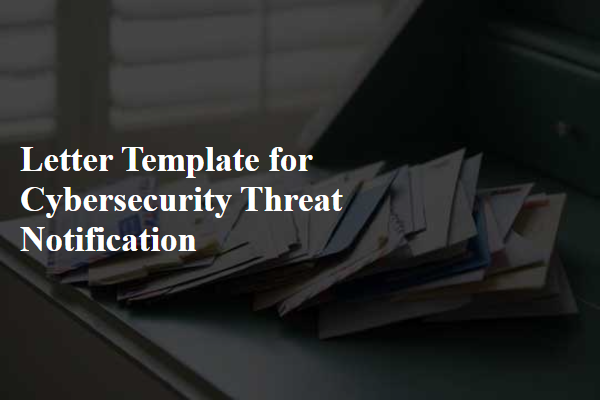
Subject Line Optimization
Subject line optimization for cybersecurity threat notifications is crucial for ensuring prompt attention and response. Clear and direct phrases, such as "Urgent: Immediate Action Required - Cybersecurity Threat Detected," engage the recipient effectively. Including specific incident details, like "Data Breach Alert: Sensitive Information Compromised," emphasizes urgency and relevance. Utilizing keywords such as "Action Required" or "Critical Security Update" increases open rates and prioritizes communication. Adding a timestamp, for example, "Cyber Attack Notification - 10/10/2023," provides context and urgency, driving quicker responses from the concerned parties.
Incident Description Clarity
A cybersecurity threat notification must clearly articulate the specifics of the incident to ensure recipients understand its significance and scope. For instance, a data breach on January 15, 2023, involved the unauthorized access of personal information (including names, social security numbers, and financial data) of approximately 10,000 customers from XYZ Company based in San Francisco, California. Details surrounding the breach suggest it was orchestrated through a phishing email that deceived an employee into revealing login credentials. The attack vector highlights a vulnerability in employee training protocols regarding cybersecurity awareness. Furthermore, the notification should emphasize the immediate response actions taken, such as the engagement of a cybersecurity firm to mitigate further risks and the monitoring of affected accounts for fraudulent activity. Recipients should be informed about the steps they can take to protect their information, as well as resources for obtaining credit monitoring services to assist in mitigating potential identity theft.
Actionable Steps for Mitigation
Cybersecurity threats often compromise sensitive data, such as personal identification information (PII), financial records, or intellectual property. Organizations such as businesses, government agencies, and educational institutions can become targets of cyberattacks like phishing, ransomware, and data breaches. Immediate action must be taken by staff and management when a cybersecurity incident is detected. Identifying the source of the threat, which may originate from malicious emails (approximately 90% of breaches), should be prioritized. Implementing multi-factor authentication (MFA) on all accounts can significantly reduce unauthorized access risks. Conducting regular security assessments and vulnerability scans, scheduled quarterly, ensures potential weaknesses are addressed proactively. Additionally, employee training on recognizing and reporting cyber threats fosters a security-conscious culture within the organization, reducing the likelihood of successful attacks.
Contact Information for Assistance
Cybersecurity threats can significantly impact organizations, requiring prompt communication regarding potential risks. Victimized entities may need immediate assistance to mitigate damages. Key contact information, including the IT security department's phone number (e.g., +1-800-555-0199), email address (e.g., security@company.com), and dedicated hotline for emergencies (e.g., +1-800-555-0198) should be clearly presented. Additionally, resources such as a formal incident response plan, outlining protocols for reporting suspicious activity, can help organizations navigate threats. Providing these details empowers individuals to act swiftly, ensuring that cybersecurity incidents are addressed effectively and efficiently.
Legal and Compliance Considerations
Cybersecurity threats can significantly impact organizations, leading to legal and compliance issues. Breaches involving sensitive data such as Personally Identifiable Information (PII), protected health information (PHI), or financial records must adhere to regulations like the General Data Protection Regulation (GDPR) or the Health Insurance Portability and Accountability Act (HIPAA). Timely notifications should be sent to affected individuals (often within 72 hours of detection under GDPR) to mitigate potential ramifications. Organizations must also document these incidents, detailing the nature of the threat, the data affected, and the steps taken to remediate the issue. Legal counsel should be consulted to navigate applicable laws and ensure compliance during the notification process to avoid potential fines or lawsuits.

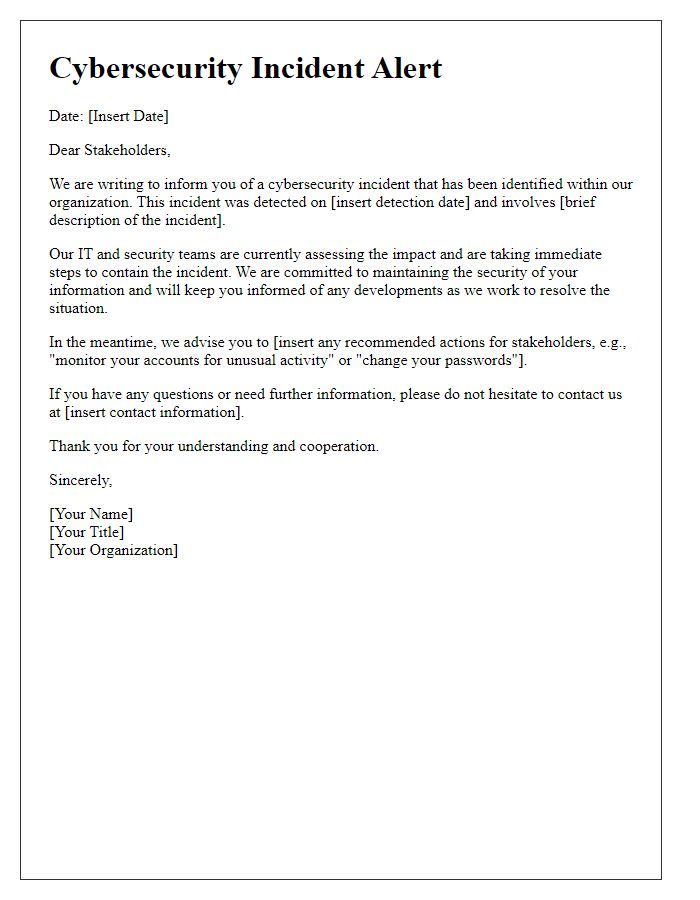
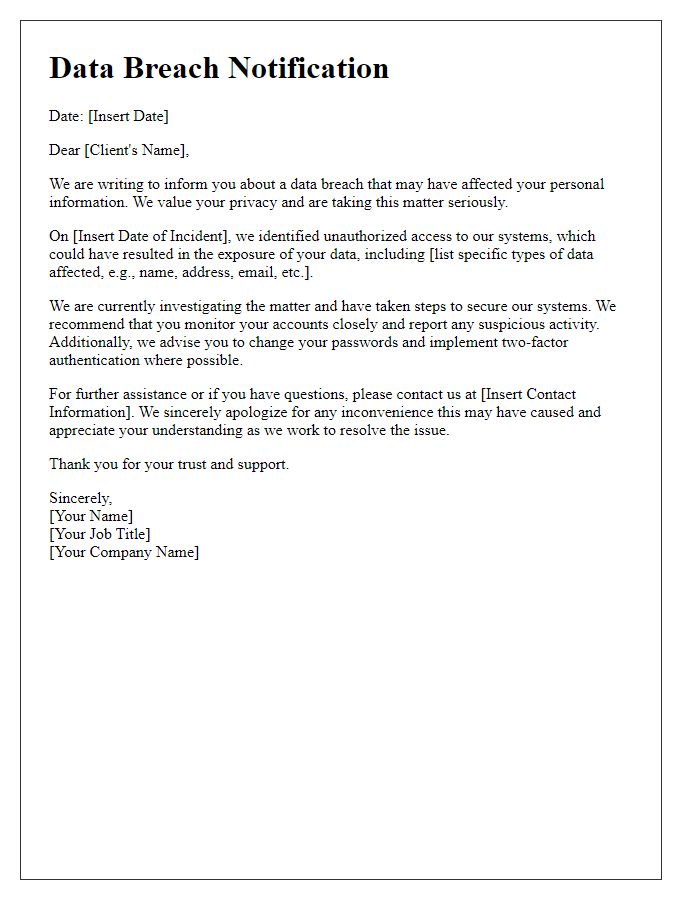
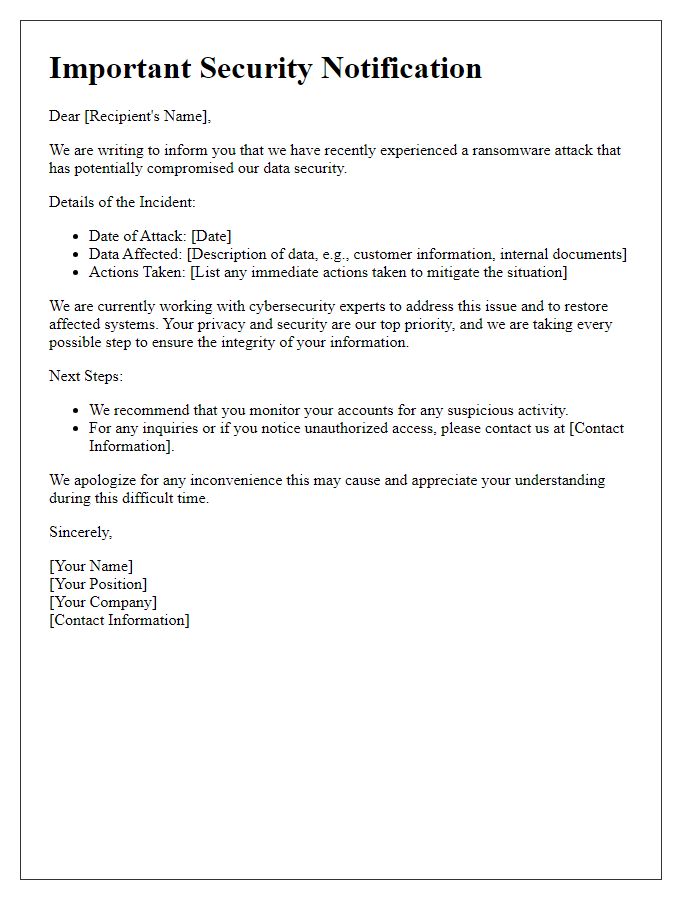
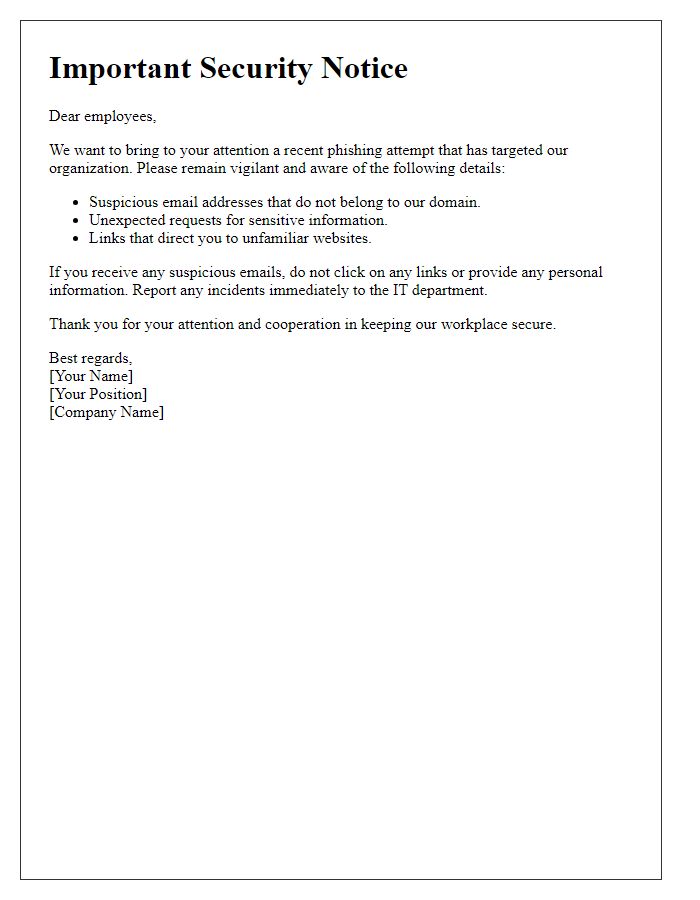
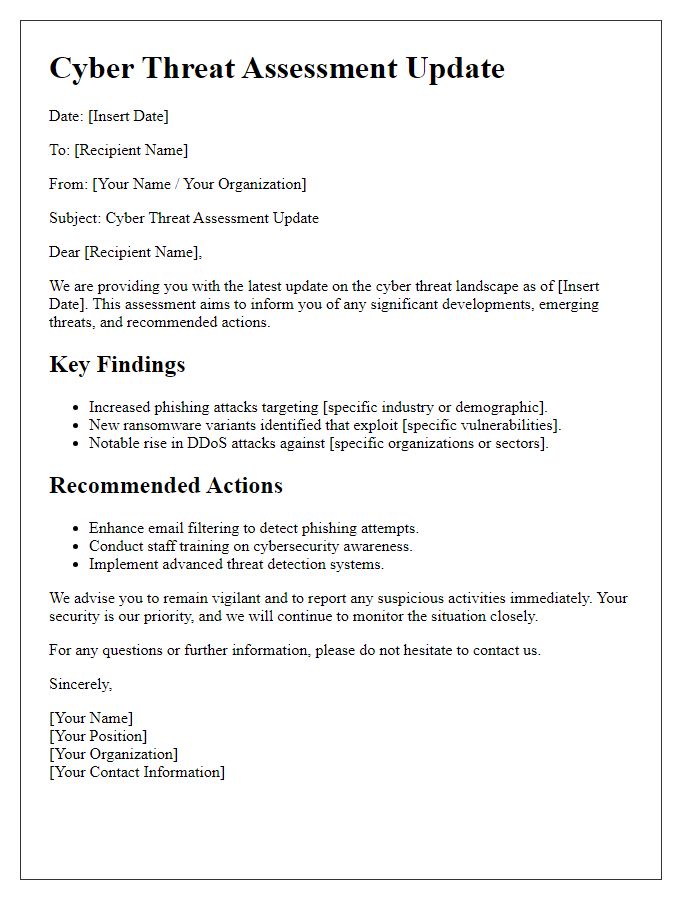
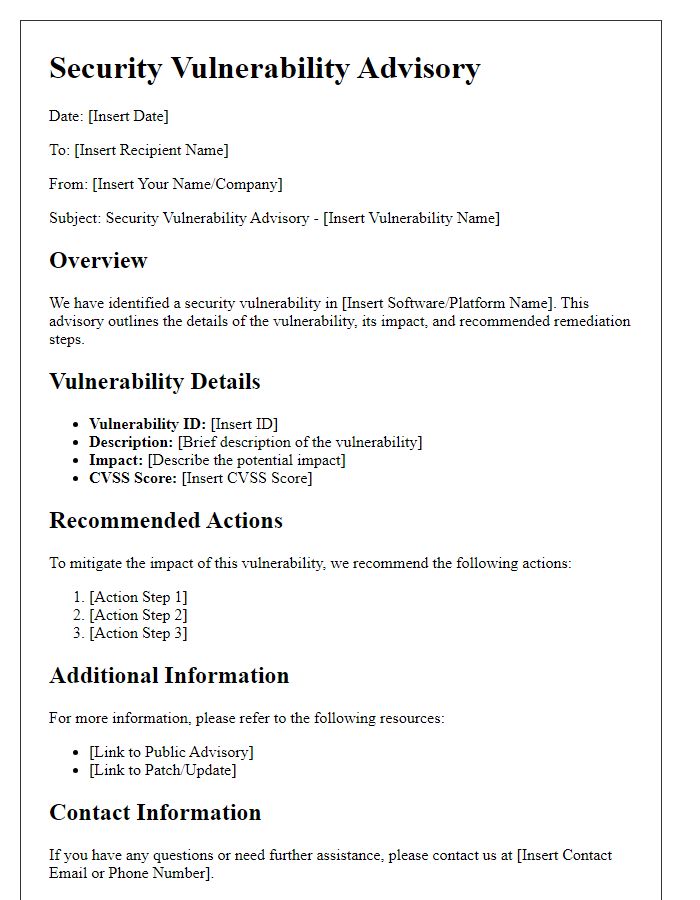
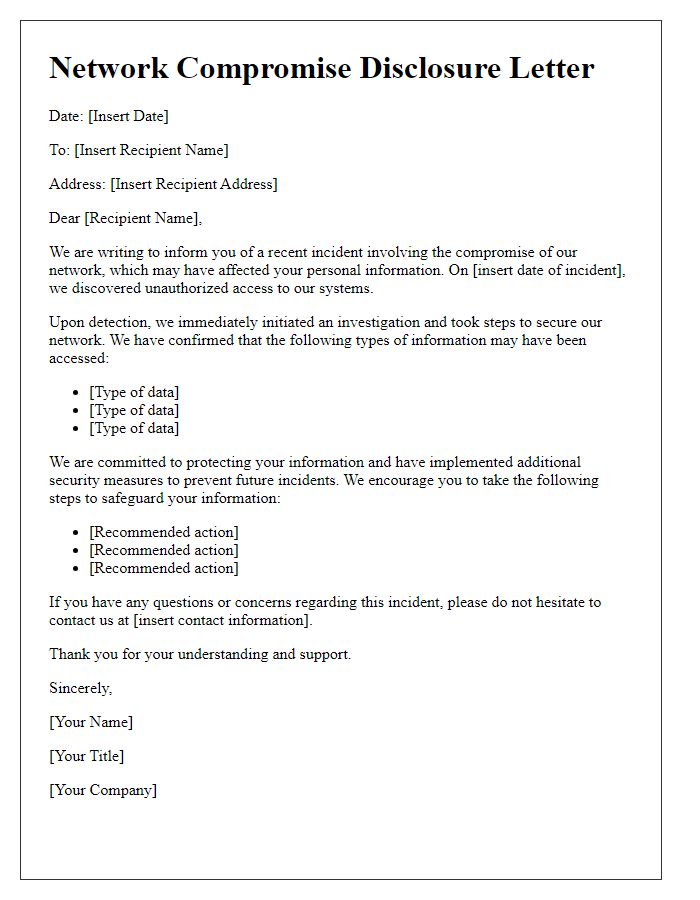
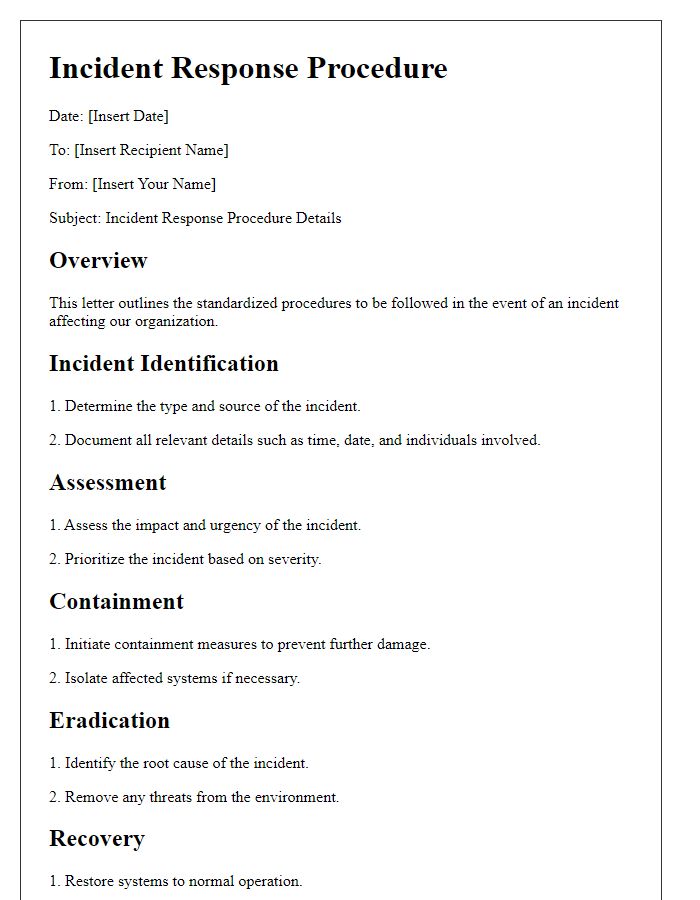
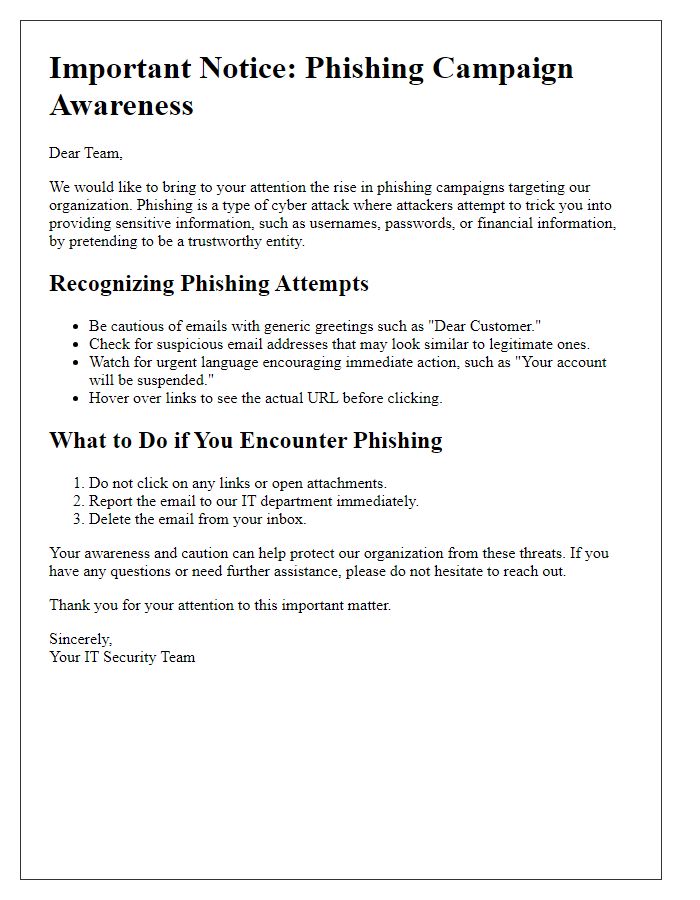
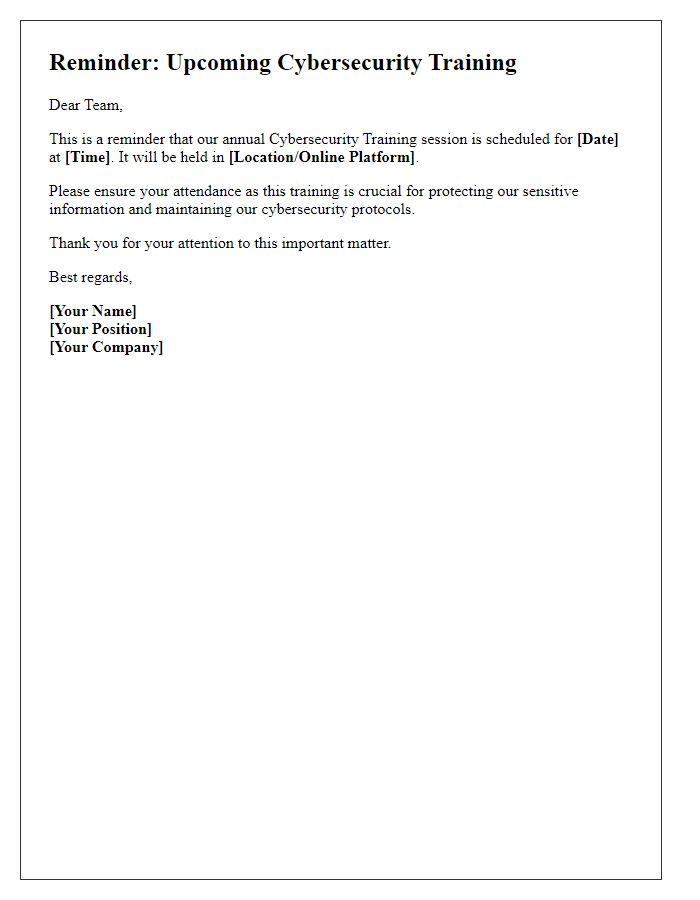


Comments